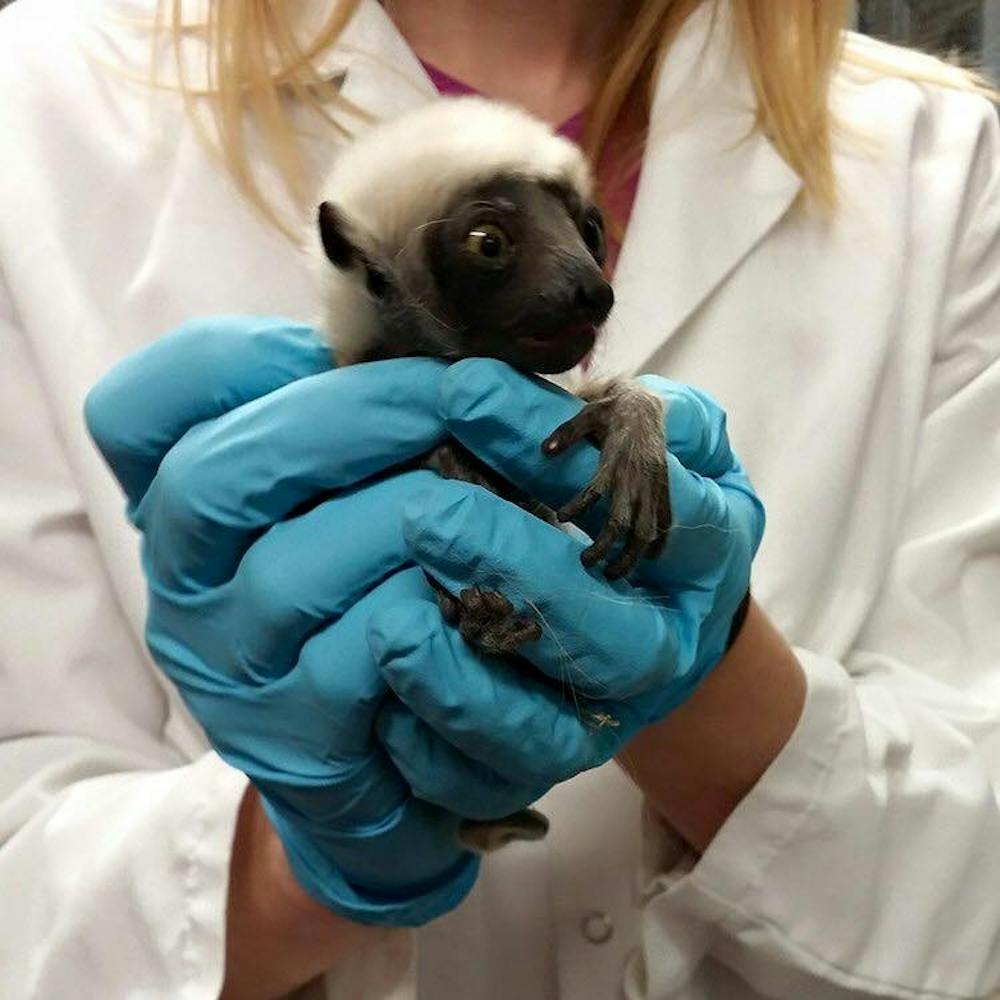The Duke Lemur Center is planning a series of programs throughout the year to celebrate its 50th anniversary.
Events include an anniversary party at Devine’s Restaurant and Sports Bar next Thursday in which Lemur Center tours and merchandise will be raffled off and a science symposium featuring 50 years of lemur research in late September. This year’s Winter Forum was also co-sponsored by the center and focused on sustainable living in Madagascar, a theme inspired by the threats faced by lemurs in the island nation.
“We are so lucky to have access to the second-largest population of lemurs on the planet, only after Madagascar,” wrote senior Colette Kolenda, a student organizer of the Devine’s event, in an email. “Lemurs are an endangered species, and it is amazing that we have such easy access to a variety of them.”
Home to approximately 240 individual animals representing 21 species, the Lemur Center was established in 1966 when co-founder John Buettner-Janusch realized that the Duke Forest was an ideal habitat for lemurs and decided to move the lemurs he acquired in Madagascar to Duke, said Chris Smith, education manager at the Lemur Center.
The center’s main objectives are to conduct research on primates and facilitate initiatives for conservation and education projects, Smith explained. Projects include sending teams of global health students and faculty to work on such projects in Madagascar, in addition to shipping lemurs from Durham around the world for breeding.
“Lemurs are primates, that means they are in the same family of animals as humans,” Smith said. “The things we learned about lemurs can contribute to what we know about humans and where we come from, and that will make us all a lot better off.”
Smith noted that the center became more invested and involved in conservation in the mid-1980s, when researchers realized the impact deforestation and habitat loss in Madagascar had on lemurs.
“Because lemurs only live on the island of Madagascar, if they are extinct, the world loses 20 percent of the primate species,” he said. “It won’t do us any good to have 240 lemurs in Durham if there are no lemurs left in the wild.”
In recent years, the center’s research has focused on lemurs’ strong sense of smell as well as their cognitive abilities, Smith added.
To engage with students, the Lemur Center offers internships throughout the year for students to assist with animal care, research and education. Students can also volunteer to help with diet preparation, feeding and cleaning on a weekly basis.
Freshman Eudora Miao—who has been volunteering at the Lemur Center since last September—said her visit to the center during orientation week through a faculty outing event piqued her interest in learning more about the animals.
“I’d never seen lemurs before I came to Duke, but doing things like preparing food and feeding and learning about their homeland loss and challenges they face just made me empathize more with them,” Miao said.
Student access to the Lemur Center was made easier recently when a new partnership between Duke and the ride-sharing service Uber was announced. The pilot program offers free rides to and from the Lemur Center.
Smith noted that the Center has always aimed to engage with Duke community members and will need to continue to do so moving forward.
“We’ve been caring for lemurs, studying lemurs and protecting lemurs for 50 years now, and we will need the support of the University and the broader Durham community in order to keep protecting, caring for and studying lemurs for another 50 years.” he said.
Get The Chronicle straight to your inbox
Signup for our weekly newsletter. Cancel at any time.

